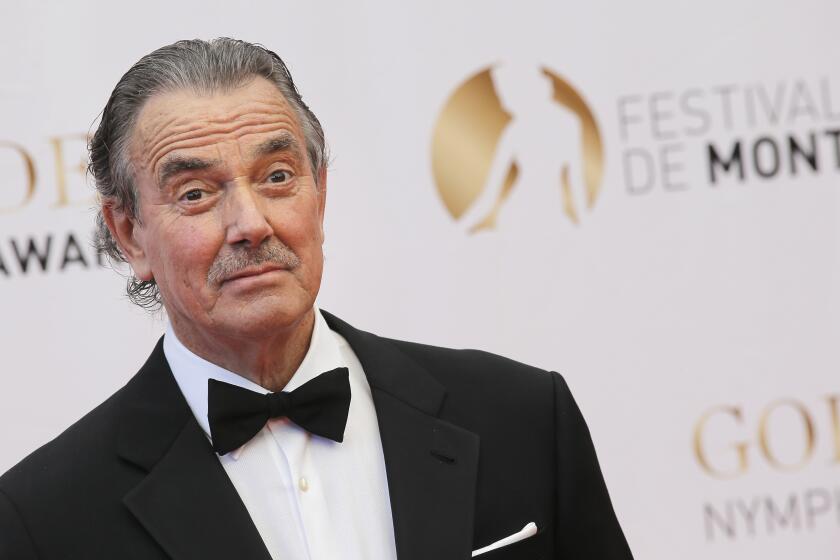Playing with the numbers
One of our most endearing qualities as a species is how thoroughly we examine a man-made disaster after it happens, as if understanding one crisis could, despite all evidence to the contrary, ward off the next one.
To help us comprehend our current economic crisis, we have a flood of editorials, books, documentaries and now, from London, a uniquely British approach: explanation through theater. The National commissioned David Hare, one of its best, most distinguished playwrights, to write “The Power of Yes,” currently on the boards.
Meanwhile another work, about one of the preambles to the crisis, is readying for its West End opening in January. Lucy Prebble’s “Enron,” a play with music, just completed a sold-out run at the Royal Court theater.
Sir David took his task very literally. He interviewed dozens of players in the economic drama, including hedge-fund managers, members of Parliament and George Soros, and he inserted them as characters in the play. These characters explain their takes on the crisis to another character -- an inquiring playwright named David Hare. Also depicted is a beautiful financial reporter hired by the National to hold Hare’s hand as he went about his research.
Any theater-goer who harbors hope of a sexy, inverse 21st century “Pygmalion,” however, is quickly brought to heel; the young woman begins their relationship by defining leverage and sub-prime lending before moving quickly on to hedge funds. A half-hour later she is still explaining fiduciary arcana. If you’ve ever wondered what it might be like to have a story from the London Review of Books read aloud onstage. . . . I won’t finish that sentence because no one has ever wondered that.
As some of his own characters point out, Hare’s drama has no hero, villain, or even victim. It is not a play; it is a dissertation. Still, the London critics were kind to Hare, and enough theater-goers purchased tickets that the run has been extended into April.
I am not entirely unsympathetic to Hare’s impulse. I agree it is important that everyone now understand securitized credit arrangements, a phrase Orwell would have enjoyed. These bundles of loans, which banks sold to other banks, anesthetized the pain that a lender would naturally feel when a debtor defaulted. What was supposed to minimize financial jeopardy instead removed responsibility, and loans were made knowing that normal risk had been bundled away.
The idea that risk could be averted for high returns in hindsight seems ridiculously naive (an idea apparently believed in by most of Bernard Madoff’s investors). But the bigger idea is that once you remove responsibility (as we should already know from the Nuremberg trials, the Milgram experiments, the Kitty Genovese case and lots of other everyday scenarios), human beings find they are capable of doing -- or not doing -- almost anything. It doesn’t take a Rhodes scholar to get why captains of finance were so delighted with the selling of these debt arrangements -- as a character says in “Yes”: “I think we can safely say if you’re paid 20 million pounds a year, you’re not incentivized to read your own accounts.”
Hare’s mistake, as a playwright, was to put so much stock in his explication of financial instruments. No one can now believe in good faith, as Alan Greenspan apparently did, that the market will regulate itself, and perhaps recent events will result in stricter oversight, at least for a while. But no play, no article, no psychologist can make a person safe from self-delusion, the real mechanism that allows humans to rain disasters upon themselves, financial or otherwise. As another character in “Yes” notes: “No banker believes he’s lucky. However much money they earn, they all believe they deserve it.”
They are all willing to believe, in other words, that they are the exception to the rule, whatever the rule may be. This we call hubris, the human trait most thoroughly examined by playwrights since the word was invented by the Greeks. Perhaps Hare thought that hubris has been so often picked over in plays that he would go for something different here.
There is talk about hubris in “Yes,” but Hare never gives us the pleasure of watching it unfold. And it is a pleasure, as Lucy Prebble shows in “Enron,” a play both less and more instructive than “Yes.” Prebble simplifies economic ideas so that she can grow expansive on the human foibles that allow us to make terrible decisions.
In its best moments “Enron” allows us to view the specter of delusional thinking from a surreal and monumental height. Its protagonist is Jeffrey Skilling, the man who brought Enron “mark to market” accounting, which allowed the company to overstate its earnings -- just the beginning of the disaster to come. Skilling goes from pudgy, arrogant boy to stream-lined captain of industry before plunging into disgrace and ruin throughout.
Prebble inserts images that make you step back from the story to behold naked self-deception in all its inevitability and pathos. She steals one image from the revealing promotional videos that Enron made about itself in its glory days, videos meant to portray the company as a visionary entity that saw things no one else could (re: imaginary profits). The company’s motto at the time was a stark and, apparently, unheeded: Ask Why.
Reappearing throughout the play is a troika of men wearing large mouse heads and holding the canes of blind men. Strange enough in the context of the Enron videos, these three blind mice are positively chilling when they appear at the top of the play and then later as they stand dumb next to Ken Lay. These are the shadows that emerge alongside of men when they fool themselves into believing they will be excused from the consequences of their actions.
Meanwhile, on the floor, the traders perform their staccato hand gestures in a rhythmic dance while bathed entirely in tiny numbers -- the stock prices are projected onto their bodies and faces. To gaze at these astral figures is to see a group of people so enveloped by an idea that they seem to harbor no individual wills at all.
Both plays explore the kind of thinking inside of “bubbles.” Near the end of “Enron,” one stock analyst explains how she could have championed Enron when neither she nor anyone else understood how the company could sustain fantastic profit margins year after year. She points out that most of us get on planes believing they will fly without understanding how they do it. “Imagine,” she instructs us, “if the belief that the plane could fly was all that was keeping it in the air. It’d be fine. If everybody believed. If nobody got scared. As long as people didn’t ask stupid questions. About what it is that keeps planes in the air.”
But wait a minute, a theater-goer might well think here. You’re a stock analyst. If you are not the pilot of that plane, then at the very least you are the major mechanic. It’s your job to know how the plane flies.
Self-righteous anger feels good. So does schadenfreude. Hare eschewed these pleasures of the drama, while Prebble uses them as a prelude to an understanding far deeper than any lesson in financial contracts could provide. To truly understand the crisis is to know that the trio of blind mice is not just onstage; it is standing over our very own shoulders.
Winer is a former theater critic for The Times.
More to Read
The biggest entertainment stories
Get our big stories about Hollywood, film, television, music, arts, culture and more right in your inbox as soon as they publish.
You may occasionally receive promotional content from the Los Angeles Times.






